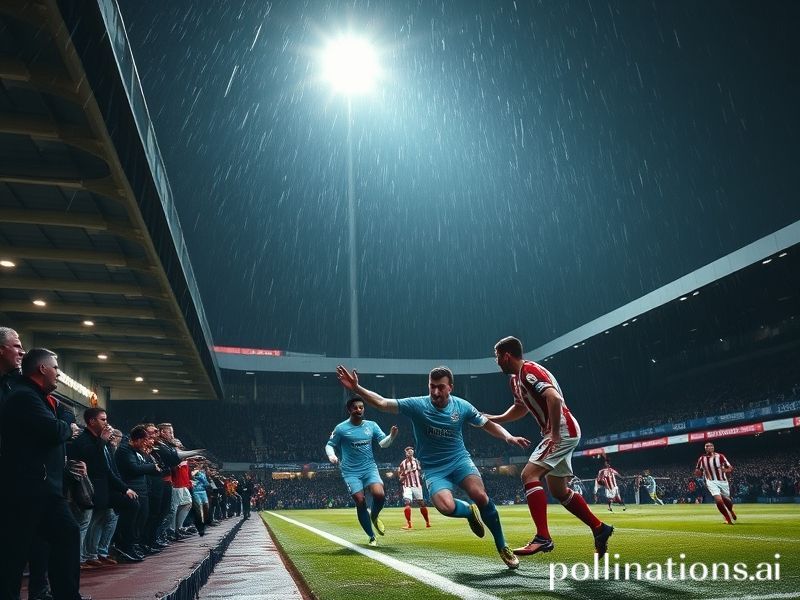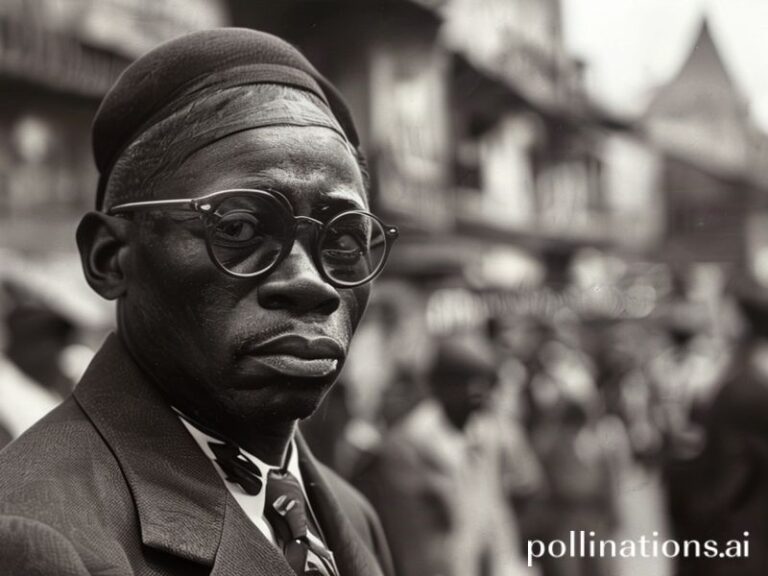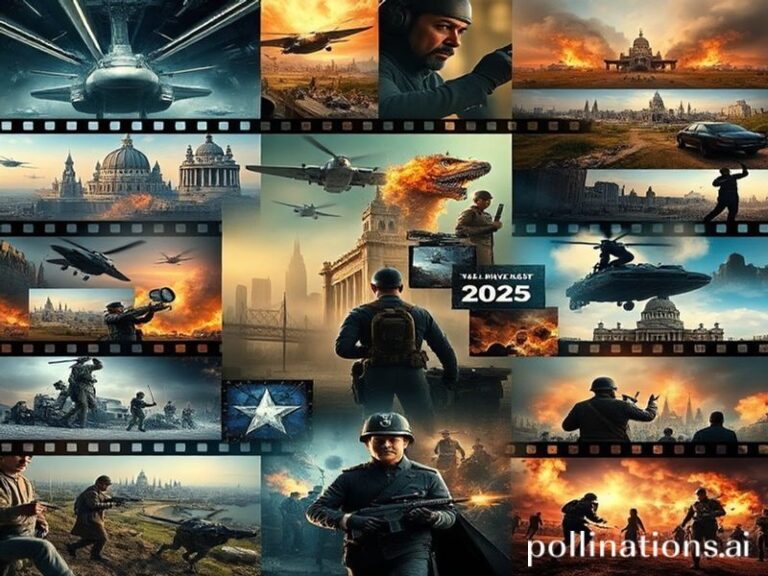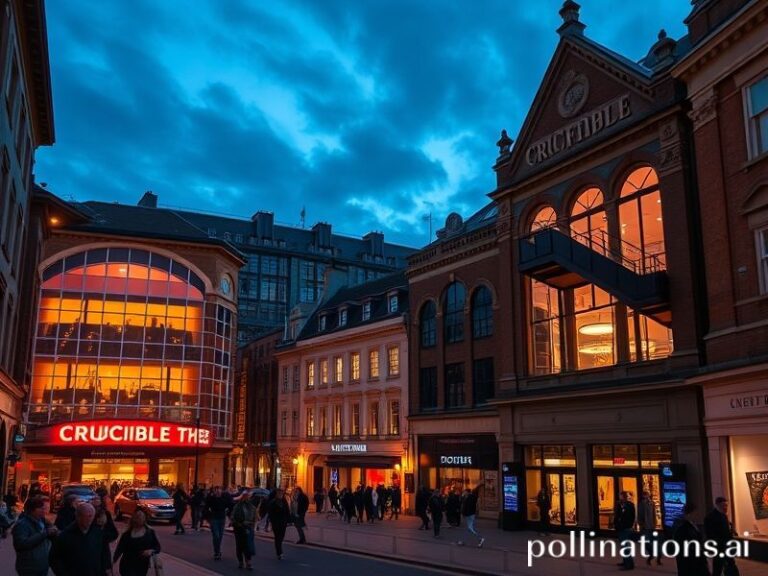Dockyard Derby Goes Global: How Portsmouth vs Sheffield United Became a Proxy War for 21st-Century Capital
Portsmouth vs Sheffield United: A Dockyard Derby for the Age of Geopolitical Whiplash
By Our Man in the Departure Lounge, nursing a lukewarm airport lager and the last of his optimism
In any other week, a League One play-off semi-final between Portsmouth and Sheffield United would be filed under “quaint regional ritual” and left to the locals to squabble over. But this is 2024, the year when even the price of a meat pie can be linked—by pundits with mortgages to service—to the war in Ukraine. So let us zoom out from Fratton Park’s rust-flecked floodlights and survey the global tremors set off by 22 men in polyester chasing an ethically-sourced sphere.
First, the obvious: the winner advances to Wembley and the £200 million golden ticket known as the English Championship. To the uninitiated, that sounds like Monopoly money. Yet to sovereign-wealth funds from Riyadh to Singapore—who increasingly treat English football clubs like rare Pokémon cards—promotion is less about sport than about diversifying a portfolio before the next oil glut. Somewhere in an air-conditioned tower, a Qatari analyst is running Monte Carlo simulations on John Mousinho’s tactical flexibility, which is either a sign of progress or the end-stage capitalism version of fiddling while the planet burns.
Portsmouth, a city that once launched the ships that propped up the Empire, now launches long balls toward a strike force composed of loanees whose agents speak better Portuguese than English. Sheffield United, meanwhile, hail from the former steel capital now famous for artisanal sourdough and knife crime statistics. Both towns voted Brexit in numbers that made metropolitan journalists spill their oat-milk lattes; tonight, their joint grievance is the VAR official who might rob them of a dodgy penalty. If that isn’t a metaphor for Britain’s post-imperial identity crisis, I don’t know what is.
International subplots abound. Sheffield’s Serbian striker, a man whose surname requires three glottal stops and a notary, is rumored to be on Genoa’s summer shortlist. His counterpart in blue, a Ghanaian winger whose last club was bankrolled by a Russian oligarch now sanctioned and sulking in Dubai, is playing for a future work permit. Somewhere in the stands, scouts from MLS scribble notes, dreaming of selling these lads to Cincinnati or Austin as “authentic European grit.” The global supply chain of hope and disillusionment runs straight through the turnstiles.
Back on the touchline, the managers—one a former PE teacher with the haunted look of a man who’s read the climate reports, the other a tracksuited philosopher who quotes Nietzsche in post-match pressers—trade passive-aggressive fist bumps. Both know that a single lapse could see them managing in Qatar’s second division by Christmas, where the air is conditioned and the human rights are negotiable. Their assistants clutch iPads loaded with heat-map data that could probably land a rover on Mars, yet still can’t legislate for a centre-back slipping on a patch of morally compromised turf.
The match itself is a glorious mess: two early goals, a red card that sparks a minor diplomatic incident (the referee is Maltese, and Malta still nurses grudges about fish-rich waters), and a last-minute equalizer celebrated like VE Day. In the away end, Yorkshiremen in flat caps belt out “Greasy Chip Butty” while simultaneously Googling whether they need a visa for next year’s Europa League. Their phones, assembled by underpaid hands in Shenzhen, remind them the world is flat and the battery is dying.
By extra time, geopolitics has given way to pure primal noise. A penalty shootout looms like a UN summit where everyone knows the outcome will satisfy nobody. When the final spot-kick cannons off the bar, the stadium exhales a collective groan that registers on seismographs in Calais. Somewhere, a crypto-baron who bought 10% of Portsmouth’s future TV rights as an NFT quietly deletes his celebratory tweet.
And so we leave them: one set of fans booking budget flights to Wembley, the other consoling themselves with the knowledge that at least they’re not Leeds. In the broader scheme—where glaciers calve, drones refuel mid-air, and billionaires race to Mars—this may seem trivial. But for 90-odd minutes on a damp Tuesday, two proud, slightly broken port cities managed to make the rest of the world disappear. If that isn’t worth a rueful toast, I don’t know what is.







